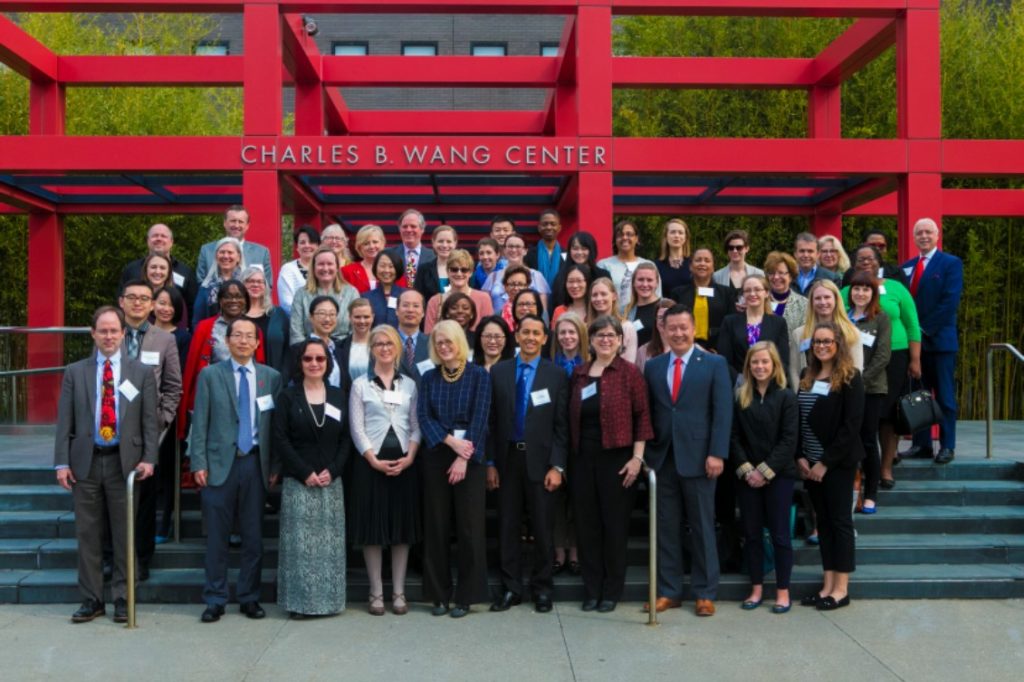|
Thematic Forum Studies International Student Success
The forum kicked off with welcoming remarks from President Samuel Stanley; SUNY Vice Chancellor for Global Affairs, Sally Crimmins Villela; Darla Deardorff, Executive Director of AIEA; and Jun Liu, Vice Provost for Global Affairs at Stony Brook University, which were followed by morning plenary sessions on four different aspects of Chinese international student success: intercultural communication, the student lifecycle, Chinese heritage students, and classroom participation. Darla Deardorff (AIEA) led an interactive discussion on the misconceptions, challenges, and opportunities for intercultural communication with Chinese international students. She concluded with some core strategies for communicating with students, such as “don’t assume anything”, “practice rephrasing (not repeating)”, and “be aware of sociocultural context”. Karin Fischer (The Chronicle of Higher Education) encouraged participants to look at the Chinese student lifecycle, from recruitment to the on-campus experience to post-graduate and work outcomes. Because universities tend to be siloed, many units only focus on a single slice of the Chinese international student experience. However, ultimate success is defined across the three parts and all the parts are interrelated. Agnes He (Stony Brook University) broke down characteristics of Chinese heritage vs. Chinese international students. Although the subgroups share common values, they may also have different cultural views about education and learning that can affect academic success. Regarding various Chinese-background students as a homogeneous group can be problematic. Jun Liu from Stony Brook University spoke about classroom interaction and the cognitive, pedagogical, affective, socio-cultural, and linguistic factors preventing Chinese international students from participating in class. It is important for faculty and administrators to have systems in place to help break the silence, like structured questions and discussions, and more multicultural activities and events. In the afternoon, a research panel discussed findings and implications of three studies: an NSF supported longitudinal study on International Chinese Teaching Assistants’ communicative challenges; a large-scale survey among international Chinese students at Rutgers University, and an ethnographic study on international Chinese students’ socialization patterns and challenges in academic discourse. After, participants divided into roundtable discussions on Orientation and Advising, Student Services, Acculturation, and Academics to determine challenges and potential solutions. Several common themes appeared during the roundtables, including the need for proactive interaction with both Chinese international students and their families, improved student services starting with pre-arrival and throughout their educational experience, and more staff and funding resources to provide adequate services. At a smaller, in-depth session the morning of April 13, participants developed a list follow-up items including a multi-university survey of Chinese international students and proposing a session at NAFSA to delve deeper into Chinese international student success. |

 In collaboration with the Association of International Education Administrators (AIEA),
Stony Brook University hosted the AIEA Thematic Forum,
In collaboration with the Association of International Education Administrators (AIEA),
Stony Brook University hosted the AIEA Thematic Forum,